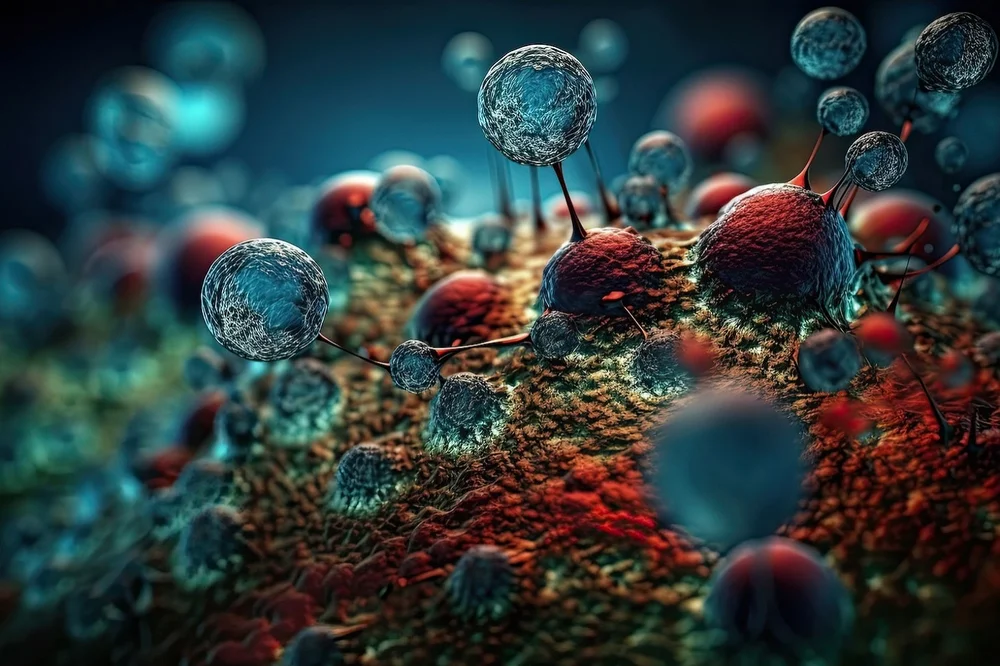4 Natural Ways to Balance Your Hormones at Any Age
Hormones are often associated with teenage angst and/or female menstrual-related moodiness.
Yet, they’re involved in much more than reproductive and sexual maturing processes. They also control metabolism, appetite, development and growth, cognition and mood, sleep, body temperature maintenance, and more.
What Are Hormones?
Hormones are the chemical messengers of the endocrine system, which is made up of eight major glands – the pituitary gland, pineal gland, thymus, thyroid, adrenal glands, pancreas, testes, and ovaries.
These glands release hormones into the bloodstream, and the hormones then deliver their messages by locking into the cells of a particular tissue or organ. They control most of the processes that happen in your body.
But they aren’t independent contractors; hormones are interconnected. What happens with one hormone may affect another.
What Disrupts Hormonal Balance
Normally, endocrine glands produce the precise amount of each hormone needed for your body’s various functions. Genetics and medical conditions can affect this delicate hormonal balance, but lifestyle factors can too.
Consider our modern lives. We’re exposed to a number of hormone-disrupting chemicals. We get little sleep. Our bodies are often in a continual stress response due to the fast pace at which we live.
The typical American diet offers too much unhealthy fat, sugar, and refined carbohydrates, causing 68 percent of us to be overweight. All of these factors (and more) are throwing our hormones off.
It’s no surprise then that medical researchers are taking note of the increasing prevalence of hormonal imbalances. According to a 2019 survey of 2,000 American women ages 30 to 60, nearly half of them have experienced the symptoms of a hormone imbalance.
So, how do you know if your endocrine system isn’t working optimally?
Signs of Hormonal Imbalance
Because hormones are involved in so many bodily processes, there’s a broad range of problems that can indicate a possible hormonal imbalance, including:
- Unexplained weight gain or loss
- Excessive sweating
- Very dry skin and rashes
- Irritability and anxiousness
- Long-term fatigue
- Increased thirst
- Changes in blood pressure, heart rate, and blood sugar
Here are some of the most common signs of hormone imbalance in women:
- Premenstrual mood swings and intense food cravings
- Heavy, painful periods
- Missed or irregular menstrual periods
- Migraines/headaches
- Excess hair growth on face and body/hair loss
- Breast changes
- Low mood
- Sleeplessness, night sweats
- Memory fog
- Trouble conceiving
- Darkening of the skin, acne, skin tags
- Vaginal dryness and atrophy
- Pain during sex
And men have their own issues too:
- Development of breast tissue or tenderness
- Trouble maintaining an erection
- Decrease in beard and body hair growth
- Loss of muscle and bone mass
- Difficulty concentrating
- Low libido
- Low mood
- Being overweight
If you want to take care of your hormonal health, here are 4 different lifestyle actions you can start following today.
4 Natural Ways to Balance Your Hormones

1. Get Regular Exercise
Physical exercise is wonderful for overall health and is a great way to balance your hormones. One major benefit is that it helps to reduce insulin levels and increase insulin sensitivity. This is important for maintaining healthy blood sugar levels in the body.
Being physically active can help increase levels of muscle-maintaining hormones. It also naturally boosts feel-good hormones in the brain, producing a true natural high!
2. Manage Your Stress
The fast pace and multiple demands of modern living too often put us in a state of intense stress, which can put too many stress hormones in your body and cause problems.
For instance, too much cortisol can impair communication between the immune system and your body’s HPA axis (the interaction between the hypothalamus, pituitary gland, and adrenal glands), which has been linked to extreme fatigue, blood sugar issues, weight gain, low mood, and immune issues.
Make sure you’re doing relaxing activities – such as spending time in nature, laughing with friends, relaxing in a bath, yoga, a walk on the beach, deep breathing, and meditation – to help balance your hormones.
3. Eat Healthy Foods
What you choose to eat has a major impact on hormonal balance.
Studies have shown that fructose (sugar) can increase insulin levels and promote insulin resistance, particularly in overweight people or people with blood sugar issues.
Limit your intake of sugar, as well as refined carbohydrates and alcohol, since they have a similar affect.
Instead, enjoy complex carbohydrates (whole foods like fruits and vegetables). They offer great nutrition and usually are high in fiber, which helps to support healthy blood sugar and insulin balance.
Fats are really important too. Avoid trans fats, but enjoy omega-3 and monosaturated fats instead. They help to promote satiety, healthy blood sugar levels, and insulin sensitivity.
Also, make sure you get adequate amounts of protein. Research has shown that eating protein decreases levels of the “hunger hormone” ghrelin and stimulates the production of hormones that help you feel full. Aim for a minimum of 20 – 30 grams of protein per meal.
4. Get Regular, Restful Sleep
Get 7 to 9 hours of restful sleep a night. Poor sleep is linked to imbalances in hormones that regulate your appetite, growth, blood sugar, healthy cognition, libido, and tissue repair.
Your brain needs uninterrupted sleep that allows it to go through all five stages of each sleep cycle. Getting quality sleep is just one way to balance your hormones.
Final Word
If you’re concerned about your hormones, consult your doctor and get your hormone levels checked. Since some imbalances can be life-threatening, hormone health should be taken seriously.
At BrainMD, we’re dedicated to providing the highest purity nutrients to improve your physical health and overall well-being. For more information about our full list of brain healthy supplements, please visit us at BrainMD.
- Foodscaping: How to Grow Healthy Foods In Your Own Garden! - April 12, 2024
- Eat Your Fruits and Veggies (Don’t Drink Them) - March 29, 2024
- Some of the Best Fermented Foods for Gut Health (Recipes Included!) - March 12, 2024



